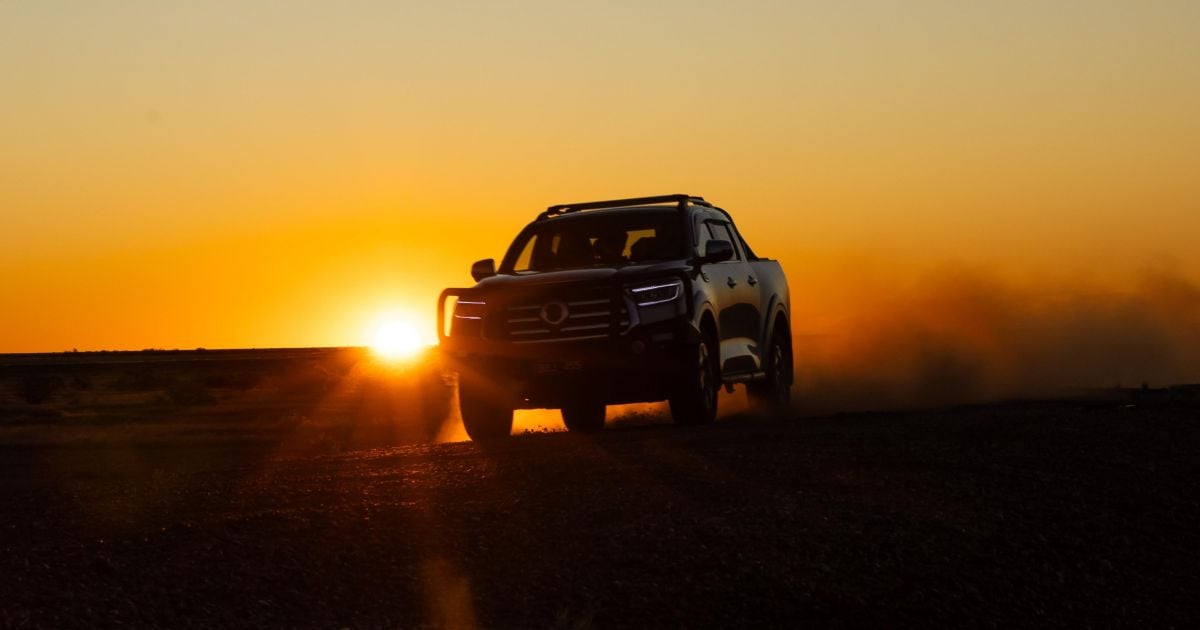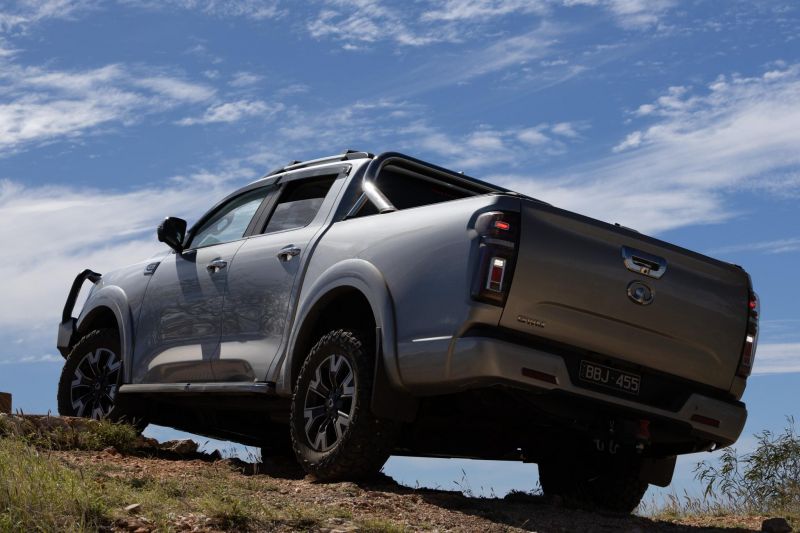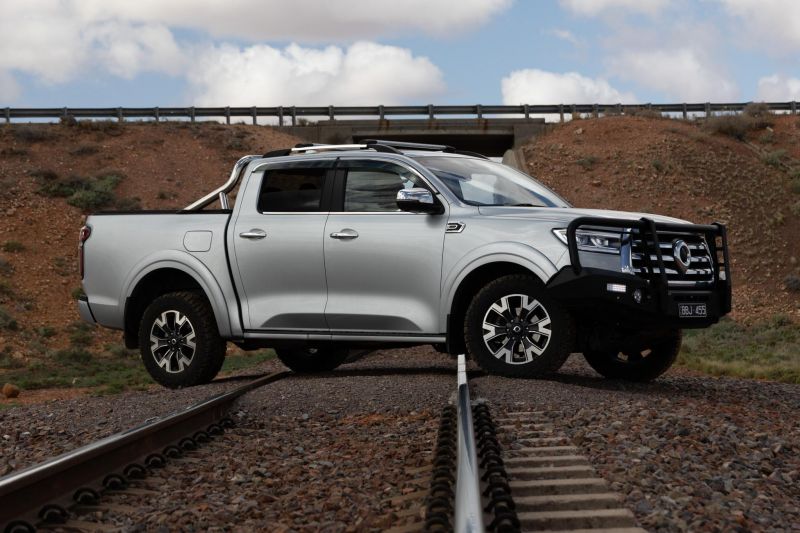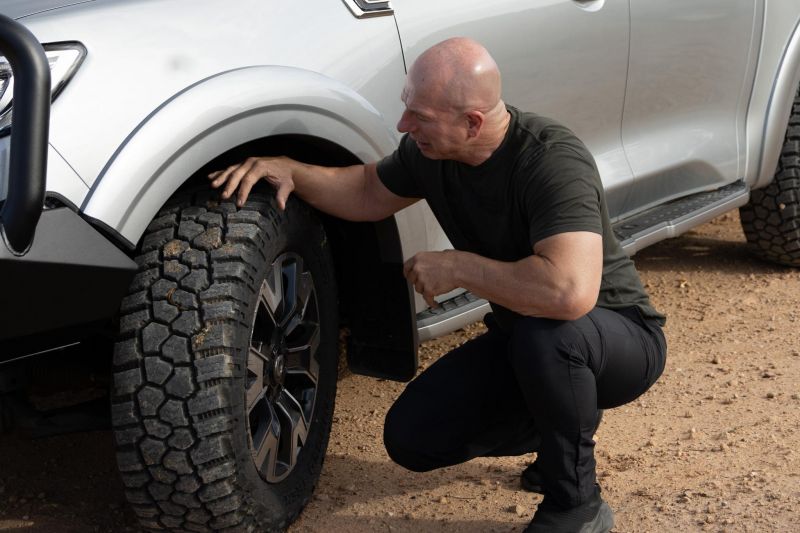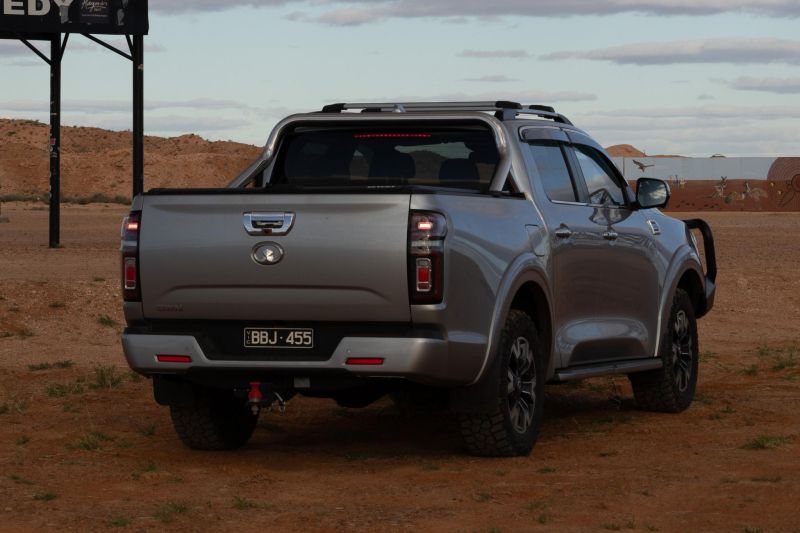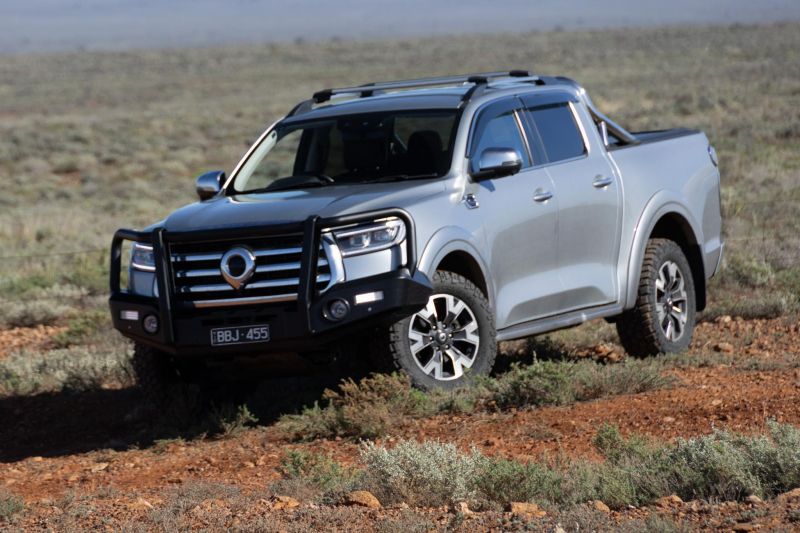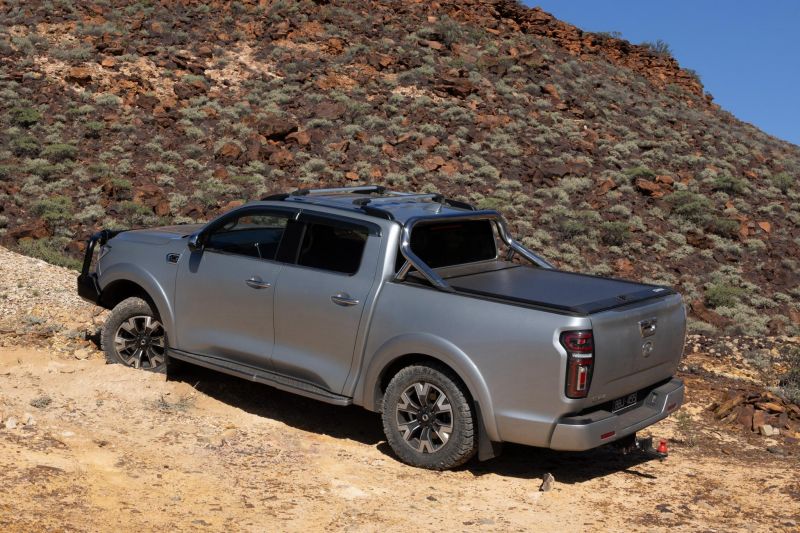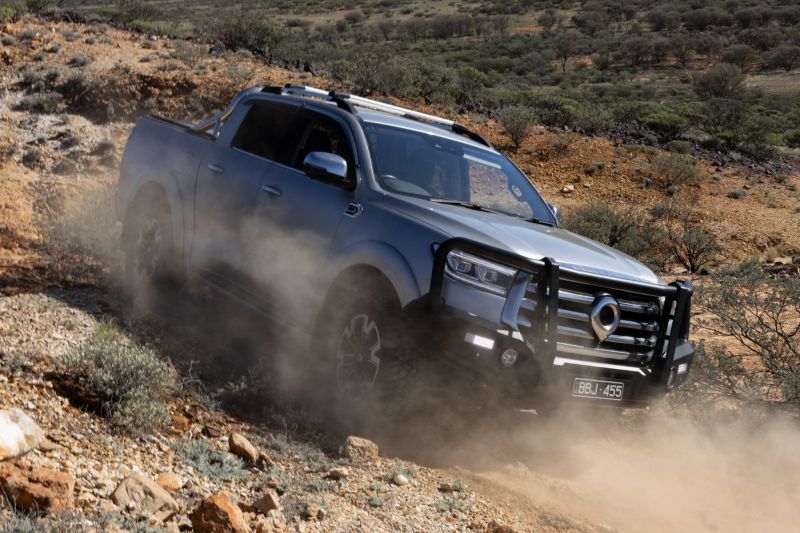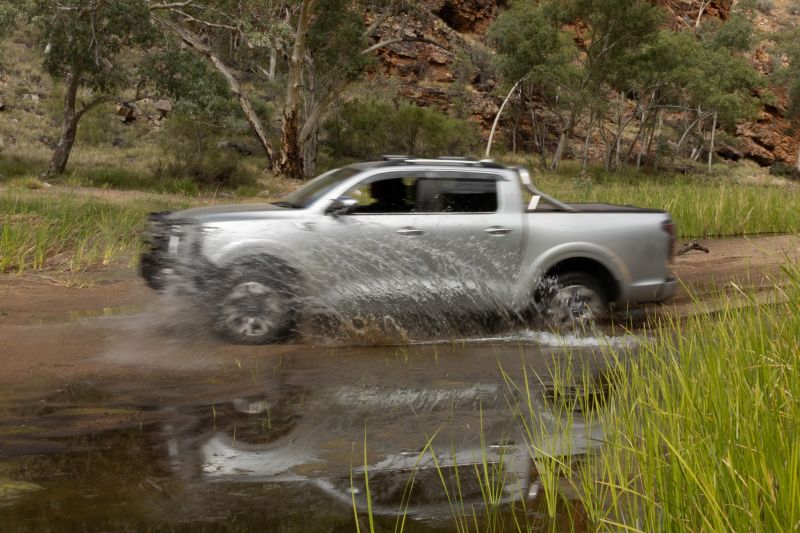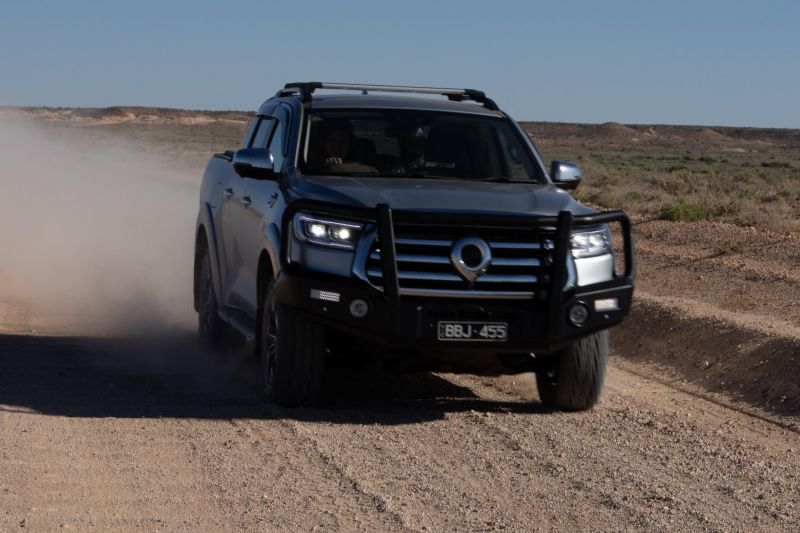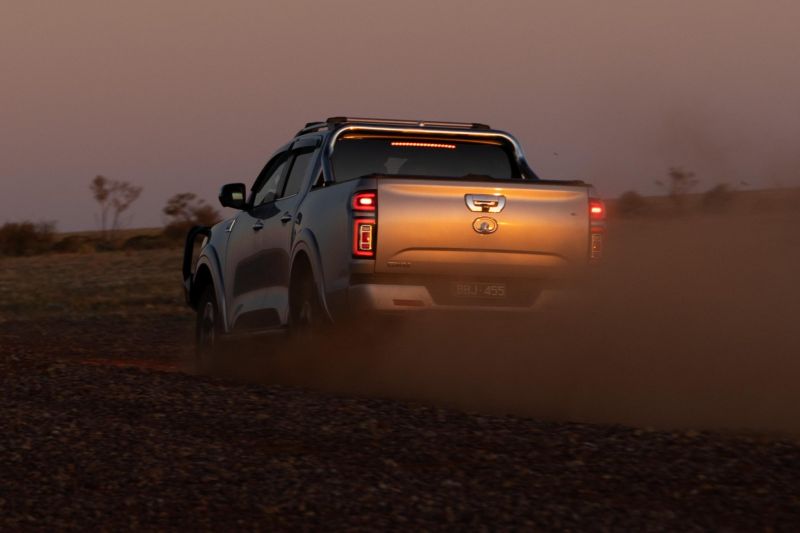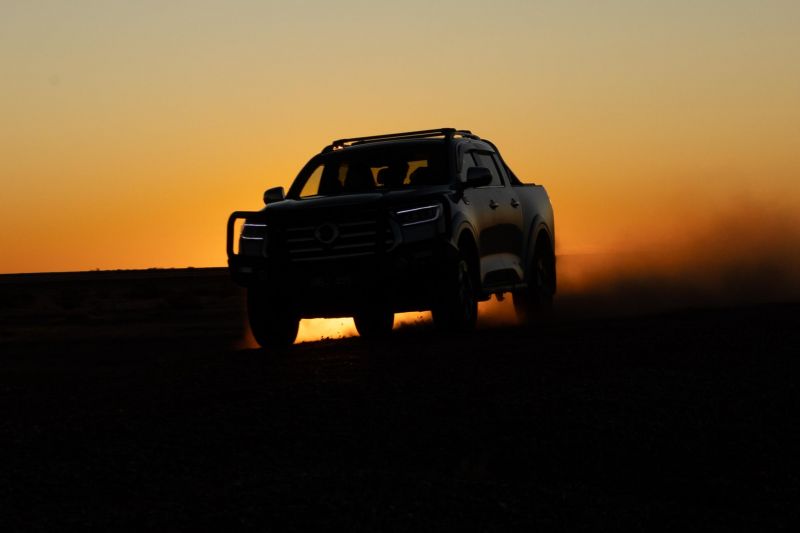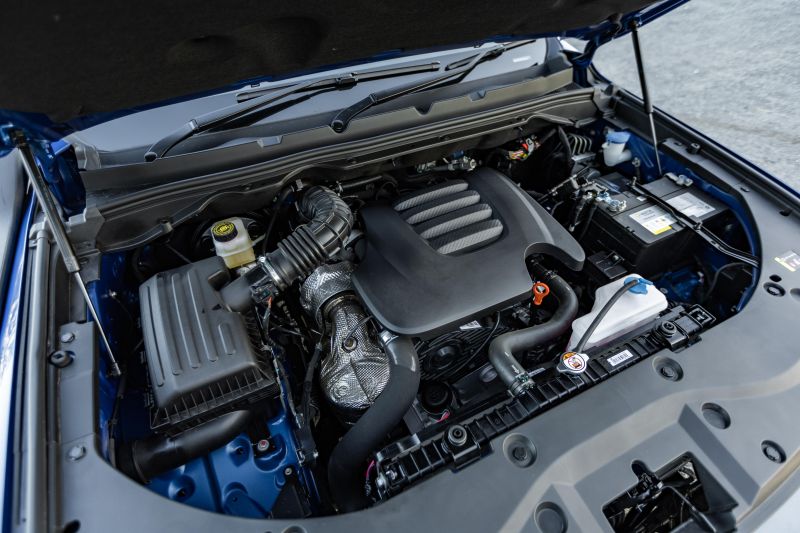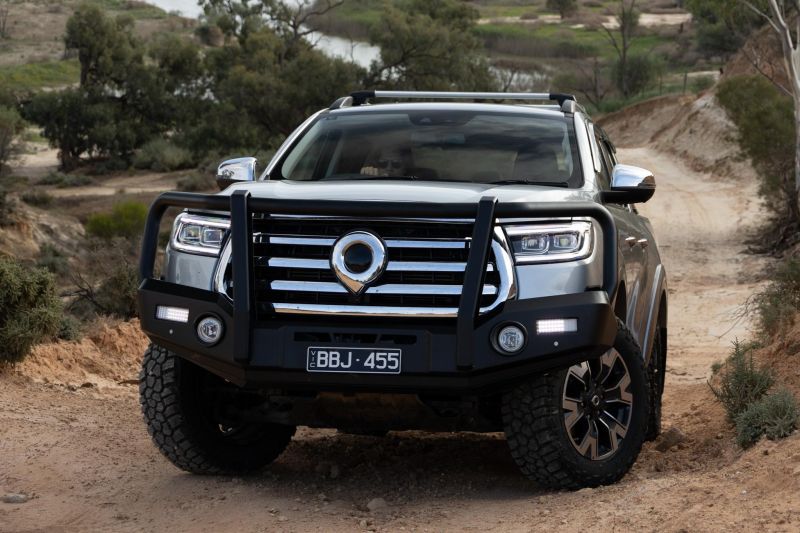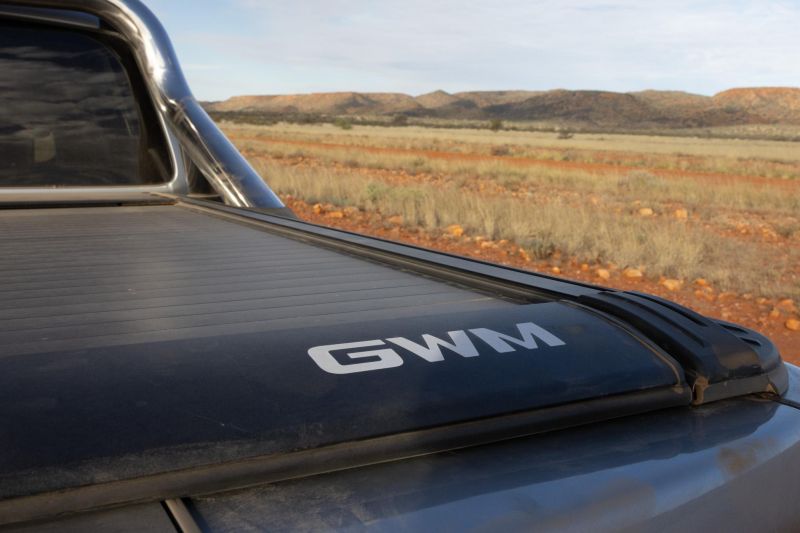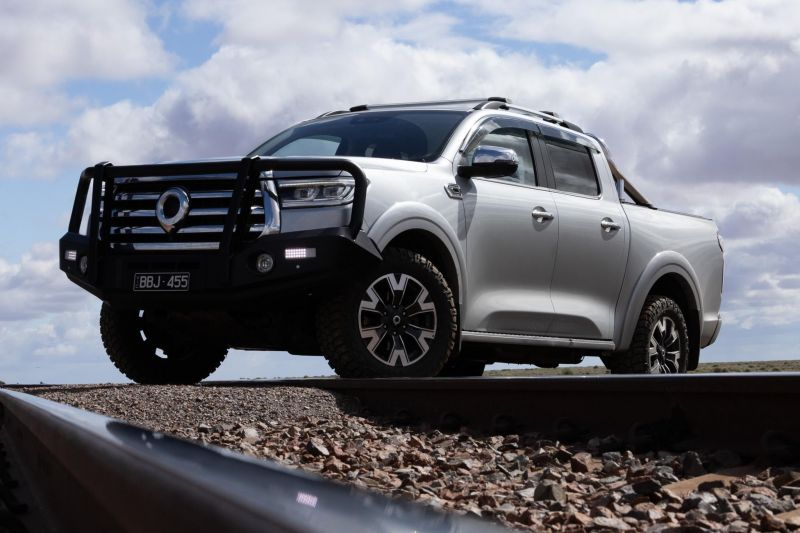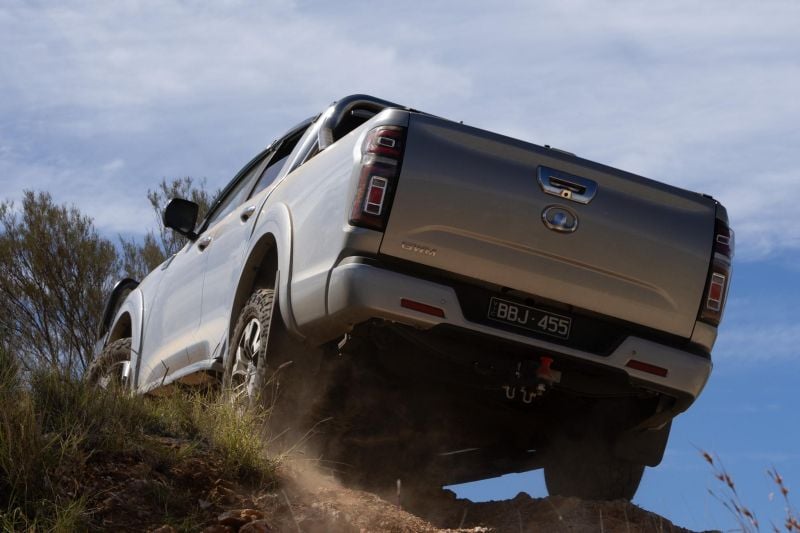With 600-800 being sold monthly, half a million produced annually and beckoning from what is now one of the world’s largest vehicle manufacturers, the GWM Ute is a Chinese manufactured dual-cab ute that blends highly competitive features and performance with an incredibly low price tag.
In a country where the thirst for dual-cab utilities seems insatiable, the Ute sounds like an absolute winner, and whilst it is selling well, there is definitely potential to sell more. So what’s holding it back?
Aside from perceptions of Chinese-made products, some consumers voice concerns regarding parts, servicing and warranty, others are worried about reliability and many have tainted memories of the earlier Great Wall V Series.
Whilst the reputation and stigma of the earlier Great Walls has stuck, there are though thousands of happy customers who have bitten the bullet on a new Ute, often due to price: at fifty-odd thousand dollars they are a bargain considering the features, fit-out and electronic safety inclusions.
Availability is also good – with many manufacturers struggling with high demand and limited stock. GWM has consistently had the Ute available for instant purchase and pick up. Many however, have purchased based on its merits after test driving one.
Ultimately, it is more than likely a combination of these factors that gave GWM the sale. Yet the resistance from many others continues and only time will tell if their concerns are valid. Can we dispel some of them here?
We’ve test driven and reviewed the GWM Ute a number of times, but considering the plausible arguments from both sides, we felt it was time we lifted the bar and put more of a real-world test before the Ute.
What could be harder than an outback trip, two weeks heading to the red centre and tackling the infamous Ruby Gap gorge?
Well fortunately that was an easy one for us and we had the perfect challenge in mind. Not only would we do all of the above, but we would give the trip some purpose, diversify the challenge and load the Ute right up by making it the camera crew car as we headed to the East MacDonnell Ranges, just east of Alice Springs, to film five episodes of my touring and destination program, YOUR4X4 on 7Mate.
So with four big blokes, all of their clothes for a 14-day trip, all of the required camera equipment, plus water and snacks for the drive, we loaded up the Ute and headed off to Alice Springs.
It’s a scratch over 2000km from Melbourne to Alice. It’s the perfect opening test for the Ute; and whilst we really wanted to see just how well the Ute would go in stock form, there were two things we specified as critical changes for outback travel.
The first was fitting a bull bar for protection and the second was a set of light-truck construction tyres. We went with the Cooper Rugged Treks, a new breed of tyre described as a rugged terrain (RT), that sits between the conventional all terrain (AT) and a mud terrain (MT) in terms of aggressiveness and traction.
It’s the ideal tyre for taking on the diversity of challenges and terrain the outback can throw up, as well as having the right compound, construction, load rating, sidewall strength and tread depth for the trip we had ahead of us.
From the standpoint of our crew, the journey up to Alice was comfortable and easy. The Ute loped along smoothly even when fully loaded.
Fuel consumption was slightly up but not excessive (this would of course have been higher if we had a full contingent of aftermarket accessories added – always something to keep in mind) and whilst cabin and road noise was minimal, the lads took full advantage of the infotainment system.
All in all, it was an uneventful drive with standout factors being the greatly improved driveability, the luxurious comfort and even the pride in being in a new car.
The crew compared it to their standard mode of transport: a very badly bashed and abused 2011 RG Colorado dual-cab that’s well past its use-by-date. The staff were ecstatic to say the least!
With such a positive ride to Alice, we were all set for our big adventure, the eight days trekking across and filming a convoy of ten vehicles through the East MacDonnell Ranges.
It sounds very straight forward, but this is where the challenge really starts to come into its own.
Not only is the camera car loaded up with blokes and gear, it has to work harder than any other vehicle in the convoy.
The Ute would need to leap frog ahead to continually be at the front of the convoy, run back and forward multiple times dropping cameramen into place and picking them up, get in and out of tougher locations and have staff with equipment clambering in and out all day long, whilst still keeping to our extremely tight production and travel schedule.
It’s no mean feat and far from the glitz and glamour of working on an off-road TV show travelling to exotic locations. It’s a genuinely tough and exhausting job that demands the utmost from the staff, their equipment and the vehicle they drive.
Speaking of equipment though, we were looking forward to being able to charge camera gear on the go as the Ute has an onboard inverter. The problem was the outlet plug wasn’t Australian, leaving us unable to test or use the inverter.
Off-road
Within a few minutes of leaving Alice, we hit the dirt and the 4WD selector on the Ute was finally slipped into 4H with no fuss at all. The first sections of track were straightforward but there was one steep, rocky and ugly climb that only a select number of our convoy wanted to try, and it was the first real challenge for the Ute.
Selecting 4L and the rear diff lock (all done with ease from the driver’s seat), the Ute headed skyward, the Cooper Rugged Trek tyres did their thing and the Ute walked it’s way to the narrow crest of the hill, revealing stunning views all around and back over Alice.
The conquering of that little hill impressed us all and set the scene for the rest of our trip where the Ute would glide past the convoy, conquer all obstacles and deliver our crew to wherever they needed to go in refined style and comfort, plus safety.
But the real test would be the centrepoint of our journey, the infamous and beautiful Ruby Gap Gorge, and that is where our positive run would take a turn that could possibly ruin our trip.
Ruby Gap is a stunning destination, an absolute highlight of south eastern Northern Territory and an iconic location filled with history and indigenous significance.
It was the reason for this trip, and an opportunity to experience some great off-roading. Just getting into Ruby Gap is the first challenge as you need to cross the (typically) dry Hale River, a wide expanse of invariably soft and often treacherous sand.
Whilst five of our well set-up 4x4s got bogged at one point or another, and some multiple times, the Ute drove all the way to our campsite with no effort at all. But that was expected, as every vehicle that was stranded was towing, and the other 4WDs had no issues either.
Nevertheless, the Ute did just as well in the soft sand and over rocks as the other non-towing vehicles (which included a Prado, a HiLux and a Ranger), all very well-known and highly-regarded 4x4s.
This is due to the now well-known four-wheel drive system in the Ute. It’s not that it is anything special, it is in fact just your basic 4×4 set up comprising of a dual-speed transfer case and a rear diff lock. So it certainly had no advantage over any other vehicle on our trip, but it was also no less of a real 4WD and it certainly had no issues keeping up.
We crawled out of camp the next morning amongst towering red ochre cliffs, endless blue skies, lush green vegetation – incredible recent rains had turned the outback from a dustbowl to a thriving ecosystem of green vegetation and raucous birdlife.
We made our way east along the gorge floor, in and out of the river and though more soft sandy sections dotted with stark grey granite rocks.
Rocks to a 4WD driver are like candy to kids! You know there’s a risk but the attraction is too strong, and it didn’t take much encouragement to get the Ute up and into some great photo opportunities.
Given it has no lift at all and sits on the factory suspension, clearance was a clear issue, but the low-range 4WD system and rear diff lock provided ample slow and controlled crawling to get us in and out without anything more than a few simple under body scrapes, bumps and scratches.
In a nutshell, the Ute did everything we had asked of it. It kept up, it ferried our staff around and it had proven itself to be just as adaptable, practical and capable as anything else on the trip. But, the ride back to camp through the dry Hale River was about to change everything and show up the Ute’s one major Achilles heel.
At some point, between getting off the rocks and getting back to camp, the Ute’s dashboard lit up with a number of warning lights and the vehicle was in limp mode.
All modern vehicles are fitted with sensitive electronics and overactive limp modes that can be disastrous when travelling through remote areas. We tried all of the standard tricks; restarting the car, disconnecting the battery and even ran a scan gauge with no joy at all.
It was hard to know just how much of an effect the limp mode was having, the vehicle was still driveable but clearly lacking power. The next day we tried it all again with no change but we were able to get out of Ruby Gap with limited fuss, and once we were back with service we were able to correctly diagnose and fix the issue.
It was simply a scheduled DPF burn where a specific process of pressing buttons was required on start up to set up the burn, and the vehicle must be left to run the cycle for around 15 minutes. We did this, all the codes were cleared and limp mode was never seen again during the following 2500km of travelling.
The problem wasn’t the vehicle’s sensitive electronics as such, it was more it’s predisposition for the excessively regular DPF burns and the fact that it unnecessarily goes into limp mode if you don’t do it.
We have since heard of other owners complaining of the same problem, and this was the only issue we had during our 5000km trip through the Red Centre.
What’s under the bonnet?
I think most people know what powers the GWM Ute (a 120kW/400Nm 2.0-litre four-cylinder turbo-diesel), but more few realise that it runs the extremely well-known and proven ZF automatic transmission.
Behind that sits a BorgWarner two speed transfer case. Even the diff locks are from Eaton, another highly regarded and well established manufacturer.
The point being that far from being a cheaply-made vehicle, the Ute is backed by some well known and highly reliable brands and that helps explain why it fares so well on and off road.
Mod-ability
There’s now a very good diversity of parts and accessories for the Ute.
There are even specialised Australian companies sourcing parts worldwide, like Savage Tech Australia, who specialise in accessories for Chinese-made vehicles. The one we tested would have fared far better with a basic 50mm lift kit.
The Cooper tyres performed faultlessly but with a lift kit we would have fitted larger diameter tyres for an even bigger increase in ground clearance.
The factory-supplied tub slide cover failed to seal correctly and all of our camera gear bags and cases were severely dusted.
Aftermarket lighting would have made a major difference for the night transits, and a canopy would have provided increased storage space, better security for the rear and better dust sealing.
Just as with any 4×4, aftermarket accessories make a major difference.
But just like a number of other manufacturers, GWM is narrowing that gap with upgraded factory models like the recently released Cannon-XSR, which comes kitted out with front and rear steel bumpers, front and rear diff locks and a snorkel, amongst other upgrades.
CarExpert’s Take on the GWM Ute
The critics wanted more than just a journo spending a few hours in the hot seat of one of these, and that’s exactly what we set out to do.
Aside from the drama with the DPF burn – and trust me, you will only be caught out once with this before learning your lesson and the correct burn-off protocol – the only other real issue we noted were the thin panels.
But in all fairness, it was nothing worse than any other model on the market where there is a fight to reduce weight, costs, and improve fuel economy.
This sees manufacturers skimping anywhere they can. However, the overall quality of the engine, transmission, transfer case and differentials speak for themselves, and the Ute is proving to be a tough and reliable contender.
All that is left now is for more long-term testing. With our 5000km outback torture test done, which the Ute passed with flying colours, all it will take are more Utes in the hands of consumers and the critics will be slowly silenced, one by one.
Click the images for the full gallery
BUY: GWM Ute
MORE: Everything GWM Ute

